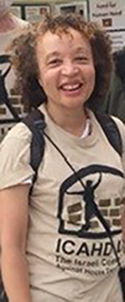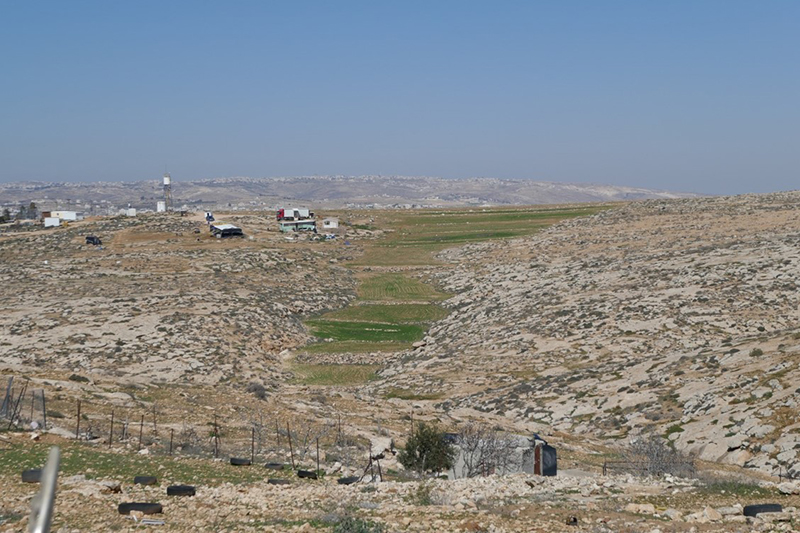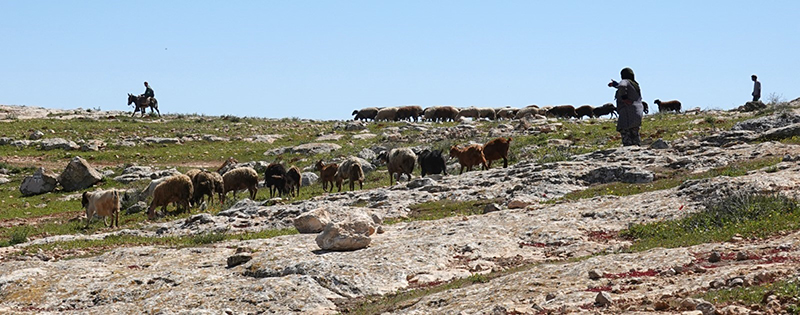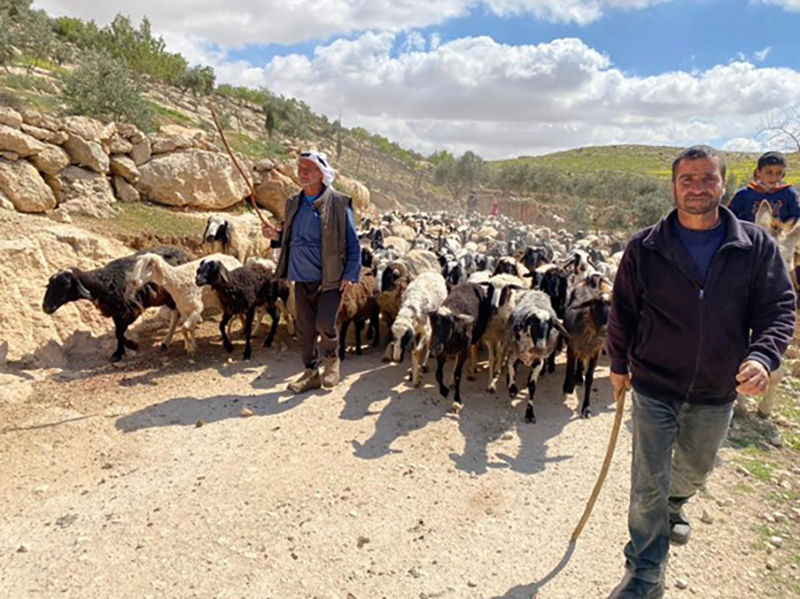
ICAHD UK member, Debby, has sent us this report following her three months in the South Hebron Hills. She discovered that Israel’s military occupation is pervasive and that whilst she expected to see house demolitions, she was shocked to see formal demolition orders for trees and water cisterns and that installing water butts to capture water is prohibited.
In January 2023 I packed my bags and headed to Heathrow airport. I had received extensive training from the Ecumenical Accompaniment Programme in Palestine and Israel (with the EAPPI) and felt as prepared as I could be to live under the shadow of one of the longest military occupations the world has known. I have followed the plight of Palestine and Israel since a teenager and felt that I was acquainted with how the Israeli state exercises its control over the life of Palestinians living in the occupied territory. But my eyes were smarted with tears, and my heart broken by what I saw in the South Hebron Hills, where I was based for three months.

The farming outpost is part of a concerted plan to annex Palestinian land. This outpost does not require a significant financial investment. It consists of little more than a sheep pen, a large caravan and access to water and electricity. The settlers who occupy this land also have a large flock of sheep which has been used as a weapon to aid the occupation. Settlers drive sheep onto Palestinian land and eat crops which are to serve as fodder later in the season. This deals a serious economic blow to the Palestinian farmers. Following the military occupation in Ukraine the price of crops such as wheat and barley have increased and raising sheep and goats in the South Hebron Hills if you depend on purchased fodder is uneconomic. Settlers regularly drive quad bikes/buggies through flocks owned by Palestinians unsettling the animals.
The Fourth Geneva Convention states that the Occupying Power shall not Transport its Population into the Territory it Occupies however Israel does not accept that it occupies Palestine on the grounds that Palestine has never existed as a sovereign state
For Umm Shadi, the stealing of the family’s most fertile land is only the first step in the settlers’ plan to occupy her home and land. Whilst I was there, settlers trespassed on her land daily, once stopping to urinate in full view of the family’s teenage daughter. Fires have been set alight close to the family’s home at night, the army have visited the family late at night, olive and almond trees have been damaged and more recently the water supply to the farm has been damaged. But the family is determined that they will stay on their land. “It is our land, and we have to be strong,” is what Umm Shadi declares. The family continues to farm in the face of this daily harassment, which began with the establishment of the farming outpost.

This is the pattern of harassment I witnessed in Masafer Yatta. The situation is even worse as non-residents supportive of Palestinians entering the firing zone are very likely to have their vehicles confiscated. Vehicles are only returned at the whim of the Israeli state and the payment of a fine which is accrued daily. The EAPPI team was restricted to offering solidarity support to the village close to the edge of the Masafer Yatta area, where it was possible for us to walk into the village. Being present in this area strengthens the resolve of local shepherds to access their land, whilst we keep watch for settlers. Once a week we would sleep overnight to deter settlers and their intention to make nightly incursions onto the farms.
The military occupation is completely pervasive
Whilst I expected to see house demolitions, I was shocked to see formal demolition orders for trees and water cisterns too. I did not appreciate that military laws extended not only to the use of water but also to its capture because Palestinians in the West Bank are prohibited from even installing water butts. As there is no advance warning of demolitions, what generally happens is that someone spots that a convoy of bulldozers, army jeeps and the white van of the District Coordination Office (DCO) is on the move. The convoy will then be followed by Palestinians, and if present in the area, Israeli peace activists and local human rights monitors to see where the convey is heading. It was of the most depressing events to watch the convoy head towards the villages I’d come to know. I wondered how the families would choose what to rescue from their home when they are only given 15 minutes notice before it is destroyed.

Whilst I saw trees being destroyed in Khallet Athaba, I heard of tree planting happening in Umm Al Khair. I saw a demolished agricultural cistern in Bani Na’im but two weeks after a home was demolished in ShiB Al Butum, I saw a reinstated water tank. It was the first sign that the family there intended to rebuild their home that had already been demolished for the third time. I saw all the shepherds of a village go out together to graze, so creating a flock that was comparable to the size of the settlers in the area. I left knowing that “sumud” – steadfastness - is alive and well in the West Bank.
Hope can never be lost when you are striving for peace. Hope is a verb.
If you would like to hear more from Debby, please send your request to info@icahduk.org
